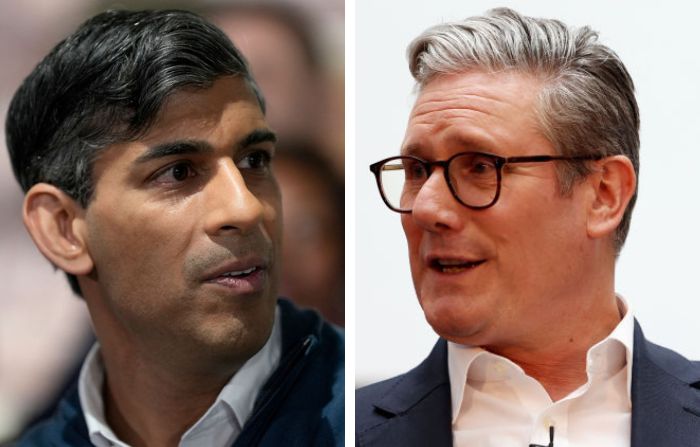- Saturday, April 05, 2025
The event will be the first in a series of face-offs between the two top leaders set to be hosted by a number of broadcasters.

By: Shubham Ghosh
IN a major development ahead of the upcoming UK general elections, prime minister Rishi Sunak and opposition leader Keir Starmer will have a head-to-head debate hosted by ITV on June 4, exactly a month ahead of the polls on July 4.
The two leaders will make an appearance on ITV at 9 pm local time for an hour, the channel has said.
The event will be the first in a series of face-offs between the two top leaders set to be hosted by a number of broadcasters.
The debate, named Sunak v Starmer: The ITV Debate — will be moderated by journalist Julie Etchingham, who hosted similar events in 2015, 2017 and 2019. It will also take place in front of a live audience.
Read: First polls since Sunak called snap election show no big change as Labour’s lead persists
ITV said it also has plans to broadcast an interview programme with other leaders besides a multi-party debate, BBC reported.
Michael Jermey, ITV’s director of news and current affairs, said election debates are significant for millions of viewers since they provide an opportunity to see the party leaders setting out their pitch, debate in person and face questions from voters.
SKY News reported that it is planning to host a leaders’ event in the battleground seat of Grimsby and Cleethorpes where the voters will get the chance to ask questions to the leaders directly.
Read: Will Sunak move to US if he loses poll? ‘Simply not true’
Other broadcasters such as the BBC and Channel 4 were yet to announce plans for any such debate.
However, it’s widely expected that there will be at least one more head-to-head debate between the two main leaders before the election on 4 July.
The BBC on Tuesday (28) confirmed that Clive Myrie and Laura Kuenssberg will host its election night coverage.
While televised leader debates have been frequent in US politics since the 1950s, it started in the UK only during the 2010 general election when former prime ministers such as Gordon Brown, David Cameron and former deputy prime minister Nick Clegg participated in three.
Since then, they have been a key part of general election campaigns. Former Conservative PM Theresa May refused to take part in them in 2017, the only leader to do so. However, she told Sky News later that she regretted the decision.